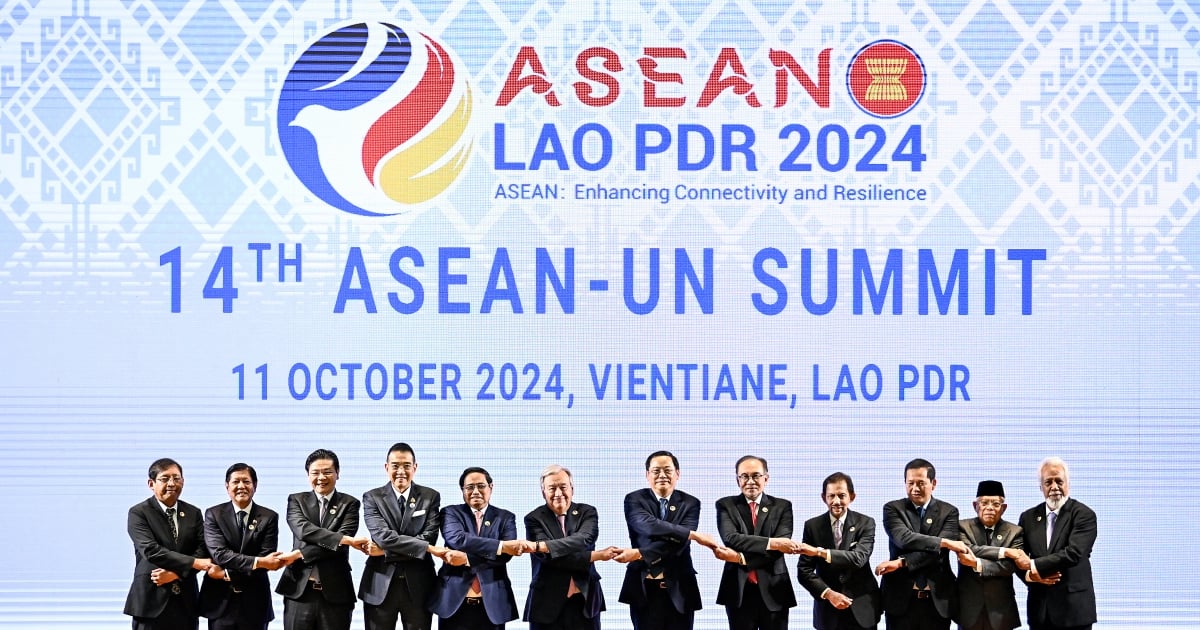
The bases of the Unifil mission in southern Lebanon are back under attack. The Italian headquarters in Shama was hit again. This time there are injuries, four, fortunately not life-threatening. In the early hours of the day, the mission announced, two 122 mm rockets hit a bunker and a logistics area used by the international military police, causing significant damage to nearby infrastructure. One of the structures caught fire, but the flames were quickly put out. Due to the explosion, some glass shattered, hitting the four soldiers belonging to the Sassari Brigade, who immediately received treatment at the base hospital. Recalling that “any attack against peacekeepers constitutes a serious violation of international law and of UN Security Council Resolution 1701”, Unifil, which evoked the responsibility of Hezbollah or affiliated groups, urged the parties struggling to avoid fighting near its positions: “Deliberate or accidental attacks against peacekeepers must cease immediately.”

The attack sparked outrage from the Italian government. Our contingent “remains in southern Lebanon to offer a window of opportunity for peace and cannot become hostage to militia attacks”, commented Defense Minister Guido Crosetto, informing that he had immediately contacted the headquarters to ensure the conditions of the military, “it is intolerable that once again a Unifil base has been hit”. Crosetto then announced that he wanted to “speak with the new Israeli Defense Minister, which has been impossible since his inauguration until today, to ask him to avoid using the Unifil bases as a shield”. Prime Minister Giorgia Meloni learned the news of the new attacks “with profound indignation and concern” and reiterated “once again” that “they are unacceptable”. Meloni then renewed the appeal “so that the parties on the ground guarantee, at all times, the safety of the Unifil soldiers and collaborate to quickly identify those responsible”. Deputy Prime Minister and Foreign Minister Antonio Tajani remarked that, “just as we told Israel to pay maximum attention, we say it equally firmly to Hezbollah. The Italian military cannot be touched”, “Hezbollah learns to use weapons, which evidently he doesn’t know how to use and causes damage.” “Intolerable criminal acts” is the summary of the Democratic Party secretary Elly Schlein, who asked “at the same time that the government report as soon as possible on the initiatives that are being adopted for the ceasefire”. A firm condemnation of the attacks, which represent “a serious and unacceptable violation of international law”, also came from EU High Representative for Foreign Policy Josep Borrell.

And the announcement by the International Criminal Court in The Hague of the issuing of arrest warrants against Israeli Prime Minister Benjamin Netanyahu and former Defense Minister Yoav Gallant, accused of war crimes and against humanity in the Gaza Strip. The West appears divided on the decision and its possible application. US President Joe Biden defined it as “scandalous”, “whatever the ICC may insinuate, there is no equivalence, none, between Israel and Hamas. We will always be at Israel’s side against threats to its security”. While President-elect Donald Trump, according to Israeli media, is considering personal sanctions against the chief prosecutor of the ICC Karim Khan and the judges who issued the warrants. Viktor Orban is also ready to challenge the Hague Court. The Hungarian prime minister confirmed that the mandate “will not be respected” and invited Netanyahu to the country. The German government “takes note” of the sentence, adding that it will evaluate “further steps” only “when a visit to Germany by Netanyahu and Gallant is foreseeable”. Paris also takes note of the ICC’s decision, reiterating loyalty “to its long-standing commitment to supporting international justice”, but without specifying whether it will carry out arrests if the two accused were to enter French territory. Madrid and London, however, have assured that they are ready to execute the arrest warrants. Indifferent Moscow. The Kremlin has made it known that it considers the Hague decisions to be “insignificant” and of no legal value, considering that an arrest warrant has also been issued against Putin. Beijing instead hopes that the Court “maintains an objective and impartial position and exercises its powers in accordance with the law and in accordance with the unified standards, and that it fully and in good faith interprets and applies the Rome Statute and the laws general”.
#Lebanon #Hezbollah #rockets #Unifil #clash #arrest #warrant #Netanyahu #Tempo
In the context of recent attacks on peacekeeping missions, what strategies can be implemented by the international community to enhance the safety and operational capacity of these missions?
**Interview with Dr. Elisa Mancini, International Relations Expert**
**Host:** Thank you for joining us today, Dr. Mancini. Let’s start with the alarming situation in southern Lebanon, where the Unifil base was attacked, resulting in injuries among Italian soldiers. What are the implications of this attack on international peacekeeping efforts?
**Dr. Mancini:** Thank you for having me. The attack on Unifil is deeply concerning as it underscores the dangers that peacekeepers face in volatile regions. The fact that Italian soldiers were injured highlights not only the risks involved but also the need for all parties to respect international law and the mandates of peacekeeping missions. Such actions are considered serious violations of international law, as emphasized by both the Italian government and the EU.
**Host:** Defense Minister Guido Crosetto remarked that the Italian contingent shouldn’t be held hostage to militia attacks. How can the international community support peacekeepers to ensure their safety?
**Dr. Mancini:** The international community must not only condemn these attacks but also enhance measures to protect peacekeepers. This could include increased diplomatic pressure on groups like Hezbollah to respect UN resolutions and possibly revisiting mandates to ensure better protection for the troops. Cooperation between nations to share intelligence and resources can also play a crucial role.
**Host:** Moving on to the recent announcement from the International Criminal Court regarding arrest warrants for Israeli officials accused of war crimes. What does this say about the current state of international justice?
**Dr. Mancini:** The ICC’s actions reflect ongoing tensions surrounding accountability in conflict situations. While the issuance of warrants can be seen as a step towards justice, it also adds layers of complexity to an already fraught geopolitical landscape. Reactions, such as those from President Biden, indicate a division in the West regarding how to approach these allegations, and this division can undermine the credibility of the ICC.
**Host:** Given these developments, what measures do you think are necessary to foster dialog and de-escalate tensions in the region?
**Dr. Mancini:** Dialogue is essential. All parties need to commit to a ceasefire and engage in diplomatic discussions to address grievances and ensure long-term peace. Moreover, international mediators should facilitate these discussions while ensuring the safety of civilian and military populations. An emphasis on humanitarian needs and socio-economic investments can also help pave the way for stability.
**Host:** Thank you, Dr. Mancini, for your insights on these critical issues affecting global peace and security.
**Dr. Mancini:** Thank you for having me. It’s vital we continue to discuss these matters as they unfold.


